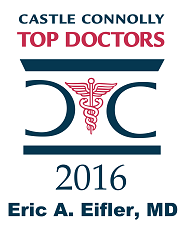Rotator Cuff Tear Treatment in Chandler, AZ: Understand Your Shoulder Pain and Take Control of Your Health
Expert Care for Rotator Cuff Tears
At AZ Orthopedic in Chandler, AZ, we know how frustrating it is when shoulder pain disrupts your routine, sleep, or work. One of the most frequent causes? A torn rotator cuff. This occurs when one or more of the shoulder’s tendons are damaged, making it difficult—and painful—to move your arm freely.
Whether your pain appeared suddenly after an injury or has gradually gotten worse, you don’t have to live with it. Our team will help you regain strength, movement, and confidence. Ignoring shoulder pain or stiffness can lead to worsening injuries and long-term damage. The earlier you act, the easier it is to treat. Our compassionate team is ready to guide you from confusion to clarity—and pain to power. Take the first step toward lasting relief.
Benefits of Treating a Rotator Cuff Tear
Proper care doesn’t just fix your shoulder—it restores your lifestyle. Here’s how treatment can change your daily experience:
- Pain Relief: Say goodbye to the dull ache or stabbing pain that’s been holding you back.
- Stronger Shoulders: Regain the strength to lift, carry, and sleep without discomfort.
- Improved Mobility: Enjoy a full range of motion so you can return to the activities that matter most.
- Prevention of Further Damage: Early treatment stops the tear from worsening or turning into a long-term disability.
- A Better Life: When you move freely, you live fully—at work, at home, and in your hobbies.
Your Rotator Cuff Treatment at AZ Orthopedic
Every rotator cuff injury is different, which is why we customize your care based on your specific condition. Here’s what the journey looks like:
Step 1: Consultation and Diagnostic Imaging
After a physical exam, imaging like an MRI or ultrasound will give us a clear picture.
Step 2: Non-Surgical Care (When Possible)
Many minor tears respond well to rest, anti-inflammatory medication, physical therapy, or targeted steroid injections.
Step 3: Surgical Repair (When Needed)
For larger or unresponsive tears, minimally invasive outpatient surgery can restore stability and reduce pain.
Step 4: Recovery and Rehabilitation
Whether surgical or non-surgical, physical therapy is essential to restore full strength and motion.
Step 5: Follow-Up Support
We track your progress and adjust treatment as needed to ensure long-term success.
Who Is a Good Candidate for Rotator Cuff Treatment?
You may be an ideal candidate for evaluation and care if:
- You’ve had shoulder pain that lingers: Discomfort that doesn’t improve with rest could be a tear needing attention.
- You feel weak lifting or rotating your arm: These are classic signs of tendon damage.
- You’ve suffered a recent shoulder injury: Any trauma—sports, falls, or lifting injuries—can result in a tear.
- You’re 40 or older and noticing stiffness or pain: Age-related wear and tear make rotator cuff injuries more likely.
- You want to prevent future complications: Early treatment can avoid chronic pain, surgery, and permanent loss of motion.
Before and After Care Tips
Before Treatment:
- Avoid lifting or straining the affected arm.
- Keep a symptom log to help your provider understand your condition.
- Share your full shoulder history, including prior injuries or surgeries.
After Treatment:
- Follow your recovery plan closely—especially physical therapy exercises.
- Manage discomfort with your prescribed medications.
- Keep every follow-up appointment to monitor healing.
- Stay consistent with rehab to regain strength and prevent re-injury.
Why Choose AZ Orthopedic?
We don’t just treat shoulders—we restore your ability to live, work, and move without pain. At AZ Orthopedic, we combine deep expertise, advanced tools, and a compassionate approach to help you feel understood, cared for, and confident in your recovery.
You deserve to live without the limits of shoulder pain. Whether you’re lifting a grandchild, swinging a golf club, or reaching for a cabinet, your quality of life matters. Contact AZ Orthopedic today to schedule your consultation. Let’s start your recovery journey together.
Frequently Asked Questions
Tears often cause sharper pain, weakness, or a catching sensation in the shoulder. A strain may feel more like soreness that eases with rest. Imaging helps confirm the diagnosis.
No. Many tears heal with non-surgical care. We always start with the least invasive options and only recommend surgery if truly needed.
Non-surgical recovery may take weeks to months, while surgical recovery usually requires several months of rehabilitation. We’ll help guide every step.
Small tears may improve with conservative treatment, but full-thickness tears often need more than rest. Early diagnosis helps prevent long-term complications.




